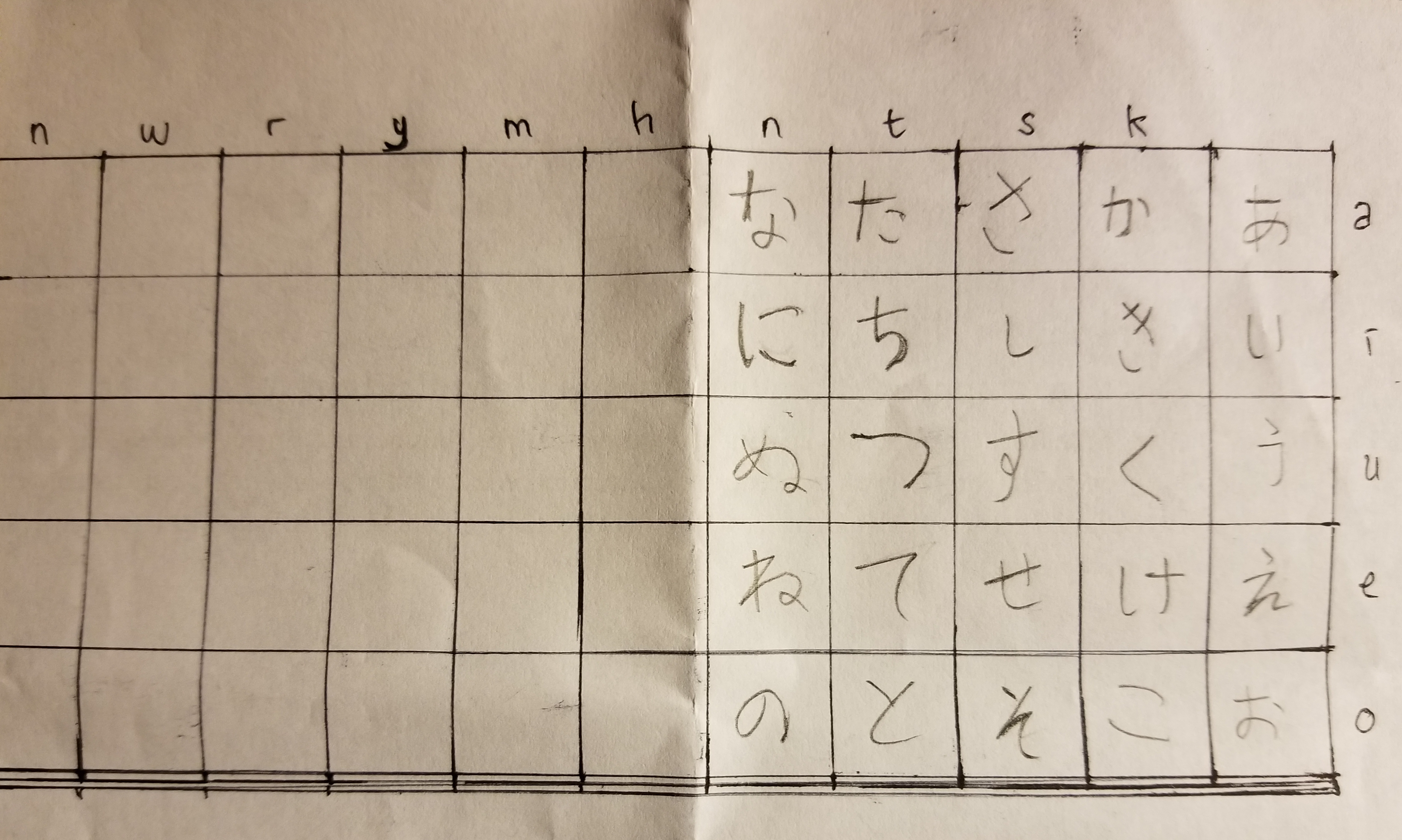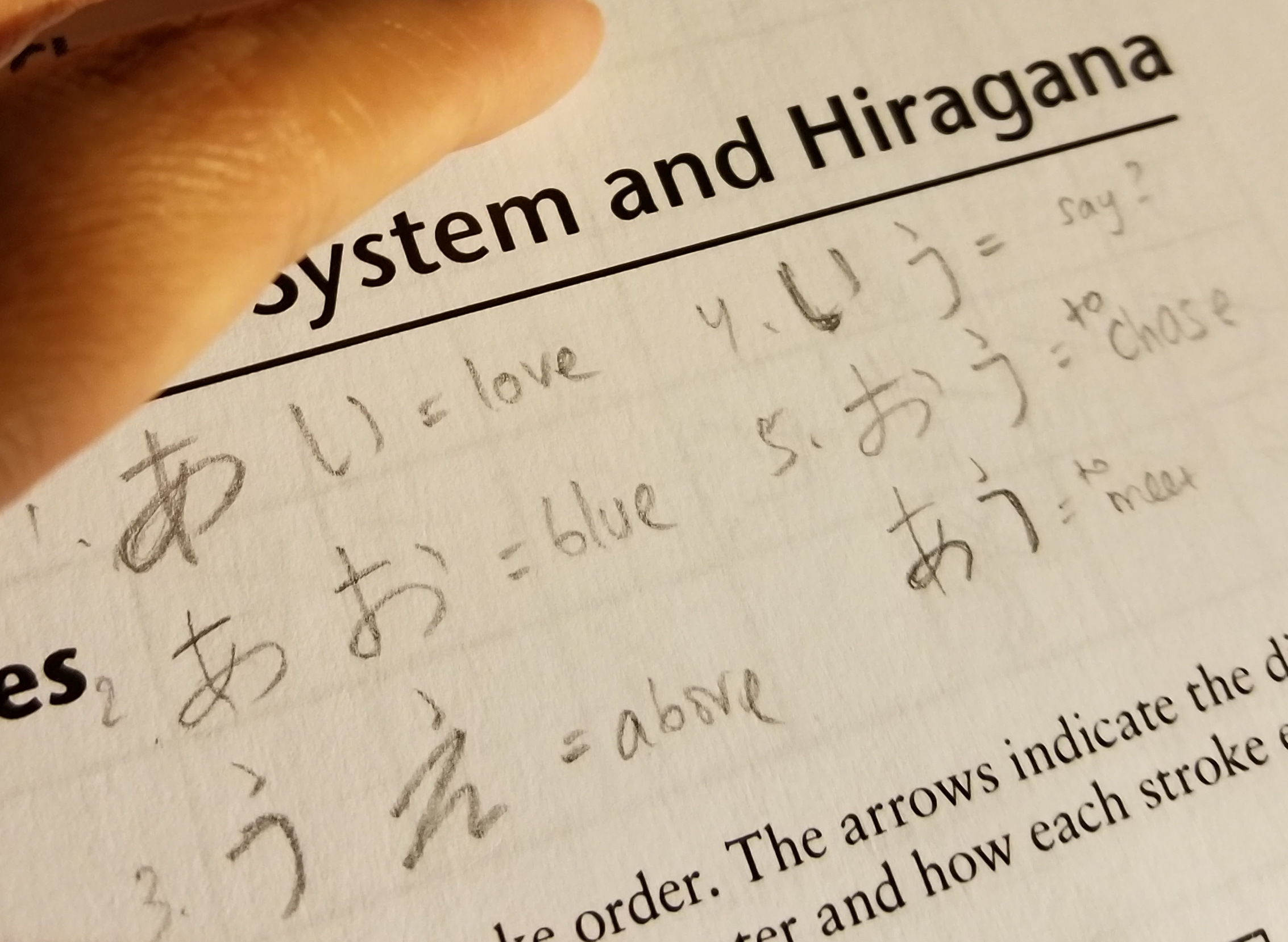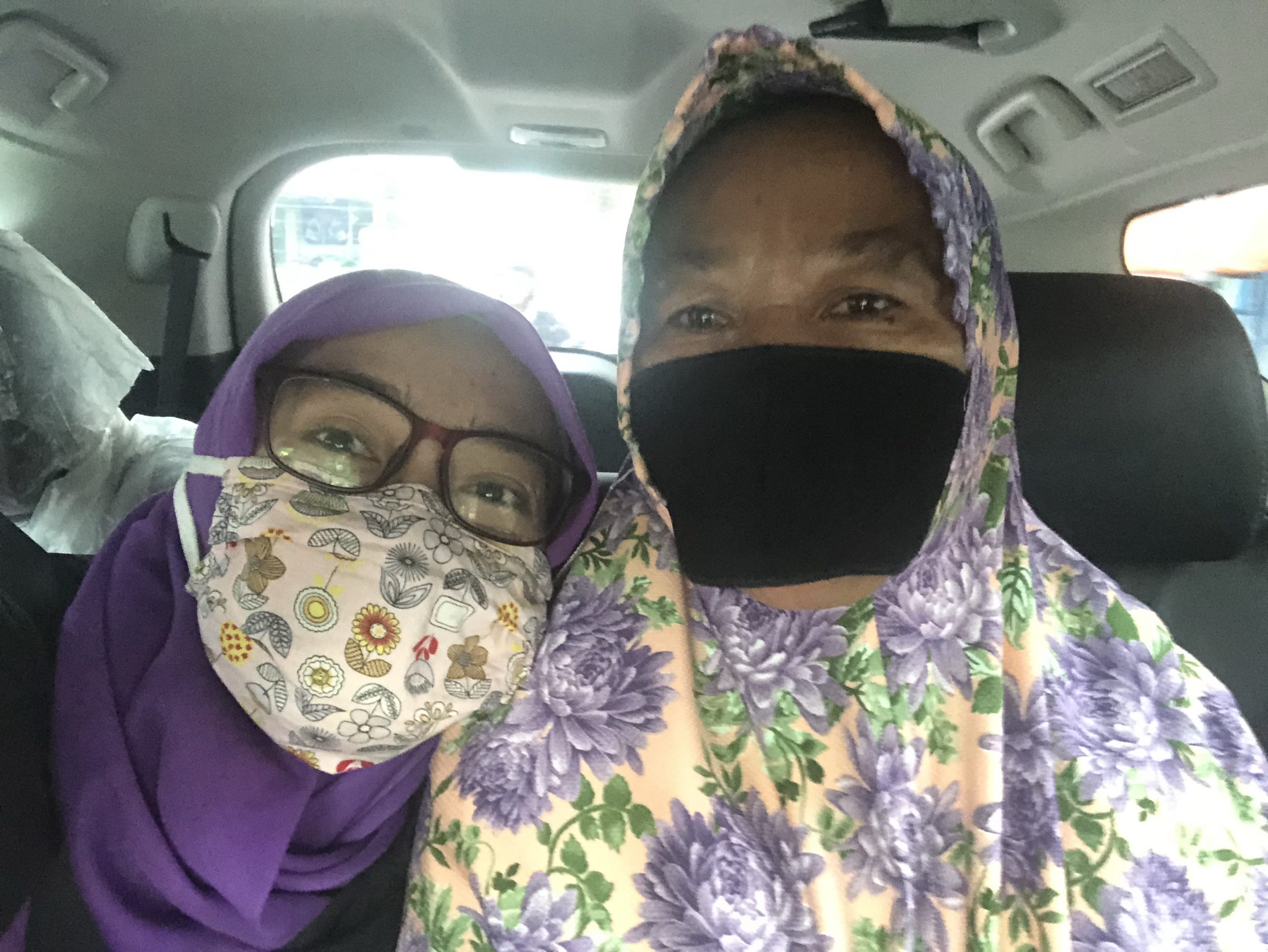
Second day of class (basically the first day we really learned Japanese), we started learning Japanese such as useful expression and the letters: there are there kinds, by the way: Hiragana, Katakana, and Kanji. (But we are not learning Japanese here, so I don’t need to explain it to you 😜) . We use mostly Japanese. Only very few times the teacher would use English for explanation. The rest is Japanese and body language to convince the meaning. But we have the textbook, the explanation in which is fortunately in English, so it helps the comprehension 😊
In terms of Japanese useful expressions, I didn’t learn much this day because, you know, even though I had never taken any Japanese courses before, I watch(ed) Japanese animes, movies, and dramas (with subtitles) so I know quite a few phrases; I know how and when to say them correctly. I just didn’t know how they were written. So the first day of class wasn’t really that challenging for me. I didn’t mean to brag, but that’s the truth. I know what to say before and after eating, leaving and returning home, good morning, good night, etc. That’s basic. But now that I think of it, I acquire these expressions when I was much younger. Learning new phrases now seem so difficult for me. Does this have to do with me getting older? I’m not sure but I think somehow yes. I cannot say much, though. I should wait till the end of the semester to find out how much progress I make.
Maybe it has to do with memorization, too. Learning a language needs it a lot, and my now-old brain might not be as good at memorizing new words or things as when I was younger. To add to it, learning Japanese feels so difficult. (Now I am really amazed at myself for acquiring English. I really have no idea how I did it. How can I be writing English like what I am doing now? Will I be able to do this well with Japanese later? I really have these questions. But this kinda affects my future decision, though. I think, later when I have my own kids, I want them to learn as many languages as they can when they are young. Learning a language when we are older seems harder.
And, like I’ve said, learning Japanese is difficult, and might be harder than learning English. I mean, when I learned English, it was hard but at least the alphabets are the same. We use the same alphabets in Bahasa Indonesia, my native language. So it kinda helped me learning English: I didn’t have to memorize new characters/letters. With Japan, however, it’s different because they use different character for the alphabets. For instance, I should remember how to write or read “a” in Japanese. Then I have to know what it means. So you see, more work. When learning English, while I had to remember how to write/read a word and understand their meaning, at least the letters remain the same. In Japanese it’s different. You can’t just combine “k” and “a” to form “ka” or combine “t” and “a” to form “ta” because they have their own character; it’s like another letter to learn and remember “singularly” or one by one. To make it clear: “ka” is written differently from “ki” even though they have the same “k” sound. “Ka” is written differently from “ta” even though they have the same “a” sound. So you see, while in English we just memorize 26 alphabets from a to z, in Japanese, it’s not like that. We have to remember not only the single letter but also the combination. In Hiragana itself, we have 46 characters/letters and combinations to memorize and remember, and we haven’t talked about Katakana and Kanji. Not to mention different styles between printed version and hand-written version. Man, it looks wow to me. I get to admire Japanese speakers (and learners) even more now. Haha
But I like the teaching and learning on this day. In addition to intensive use of Japanese, the teacher asked us to practice with other students again and again. And I think this is important because we need it. Especially for me, who might not have a lot of time outside the classroom. A lot of practice in the classroom will really be appreciated and useful. And I think I kinda learn something new from this practice. I love it. And the teacher did it in such a way where we wouldn’t feel awkward because of being bored for having to practice again and again. The class was timed and managed well. I believe that the teacher was an expert. It’s the same teacher whose signature I asked for my auditing form, by the way, the leading teacher. She was strict, but professional. I love her.

The third day (technically the second day) was kinda different. We had another teacher. Yes, Japanese 101 is taught by different teachers in turn. They rotate in teaching the first, second, third, and fourth-section classes. So, for instance, on Mondays I’ll be taught by A; on Tuesdays, I’ll be taught by B; on Wednesdays, I’ll be taught by A, etc. It doesn’t affect the course because they use the same syllabus, textbook, and materials. All classes in the four sections learn the same thing. It’s just different person and different style of teaching, I guess. But it’s kinda good too so we, the students, won’t get bored. (Though it’s still hard for me to remember all the names, but well, it’s just the beginning; I’ll eventually manage to remember their names, right?).
So this day, we moved on to learning new characters. The day before, we learned a-i-u-e-o in Japanese. This day we learned ka-ki-ku-ke-ko and sa-si-su-se-so and few combinations and a bit of new useful expressions. The teacher was too fast, though, in my opinion. You know, it’s like she was trying to teach quickly to cover everything she should teach that day but then ended up finishing it earlier and didn’t know what to do so she just ended the class because everything “has been covered” (I know, sometimes I’m like that, too; too afraid of running out of time). Still, it isn’t as comprehensive, we could use the remaining time for more practice actually. But that’s ok, I’m still a student anyway; I’m happy if the class finishes earlier 😜 But then, if I see it this way, it makes me wonder about how my students see me when I am teaching. Will they notice if I seem to rush? Will they think I’m too slow or too fast? Things like that. I guess I should take my pace, right? But again, this teacher is much younger than the yesterday’s teacher so maybe less inexperienced. (Not that age equals experience. Gosh, I hope no one from Japanese department reads this 😁). But you know, she uses more English than the previous teacher. And I don’t know why sometimes I think she’s kinda nervous. So, I don’t know. This is just my own observation, as a student who also has some experience being a teacher 😊
Back to practice, this class teaches it a lot. Since Japan is a country of cultures (not sure what it means, I just feel like saying it, though I hope you know what I mean), they also embed it in the language. We were taught to bow as we say certain words. And on the third day (I prefer calling it the second day, I guess, so let’s not count the first day), we also learned what we should say and how when leaving the class. So, because there was actually some time left and the teacher ended it earlier (probably 5 to 10 minutes early), she stood near the door, and then one by one, we left the class while saying “good bye” in Japanese, an expression that we learned that day. Cool, isn’t it? We also practiced bowing as we said it because that’s how Japanese do it. So you see, we don’t learn only the language, but also the cultures. Man, I’m really happy. I hope I can keep up with this class. Wish me luck! (Now I have to do the homework for the next class, as well as other readings and assignment for my required courses. Ganbatte kudasai! 😊)
PS: I forgot to mention: the teacher used flash cards a lot. It’s kinda good for practice and memorization.
PPS: I learned first-hand how one student’s commitment and learning might affect the others’. On the first day, the teacher dictated some words she just taught and wanted us to write them using hiragana. Then she asked us to check each other’s work. I checked with a student sitting next to me. Guess what? He didn’t write anything, neither could he check whether mine was correct or not. (Oh, undergrad! 🤦😜✌). I don’t want to judge since I had the advantage of knowing some phrases from the anime, dramas, and movies I watched though I have no idea how they are written. Still, if I kept working with such a student, how would I improve? And how would he improve? On the next day, we were asked to practice reading some words written in hiragana in the textbook, again, it’s in pairs. I was paired with another student this time. Guess what? She didn’t have the book with her! I don’t mind sharing my book, of course. Besides, it seems that she had known the letters better than me. But positioning myself as a teacher, I think I would love it better if each of my student has their own book with them. It will be better especially when there are some individual tasks required to do. I didn’t know if my partner had the book and forgot to bring it to the class or how, but if she didn’t, how would she learn at home? Well, I think I think too much. But you see the connection, right? That in learning (or pretty much in everything we do), we should be aware that our actions or how (ir)responsible we might be connected to others and affect them. We’ll see how I progress. No class tomorrow, Martin Luther King’s day 🙂
